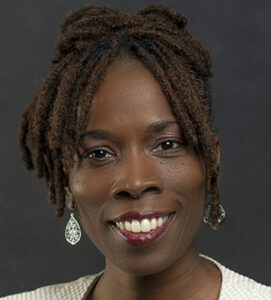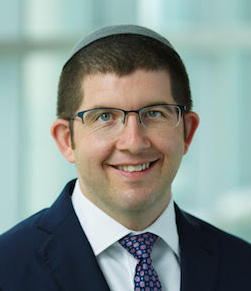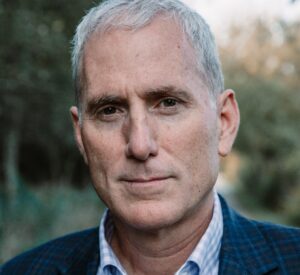Taboos around psychological illness linger in part due to the misunderstandings and suspicions faith leaders and mental health providers harbor toward each other’s roles in emotional healing, panelists said during a June 8 webinar.
Some psychologists and other counselors have been known to be dismissive of religion and spirituality while ministers in many cases have promoted faith alone over secular counseling, said Thema Bryant, incoming president of the American Psychological Association and a minister in the African Methodist Episcopal tradition.

Thema Bryant
She cited research that found mental health providers on average are less religious than the U.S. population. “So, you can have people who don’t identify as persons of faith creating therapeutic models for people for whom faith may be central. Sometimes we are using different languages.”
But it takes unhealthy attitudes on both sides to create obstacles to emotional recovery, said Bryant, a trauma psychologist who directs the Culture and Trauma Laboratory at Pepperdine University in Los Angeles. “If you have providers who are not attentive and you have faith leaders who are saying, ‘Forget mental health, all you need is God,’ then it’s making people feel like they have to choose or that any conversation between the two is problematic.”
She was joined on the panel by Rabbi Seth Winberg, senior chaplain at Brandeis University in Waltham, Mass., and David Morris, author of Lost Faith and Wandering Souls: A Psychology of Disillusionment, Mourning and the Return of Hope.
Natasha Mikles, an assistant professor of religion at Texas State University, moderated the webinar titled “Does Faith Have a Place in Mental Health?”
Bryant said the APA is currently seeking ways to create more collaboration and dialogue between people of faith and mental health providers. The task requires sensitivity to individual beliefs and practices as well as a concern for clients with negative views of religious institutions and leaders.
“For a lot of people who are not a part of faith traditions, exposure to religion is one of domination, silencing and shame, so people become fearful that you’re going to have psychologists oppress people, silence people, shame people,” Bryant explained.
But ministers also have a duty to counter the trends driving people from religious institutions and to cultivate positive attitudes toward mental health therapy, she added. “It is up to religious leaders to meet halfway and do a responsible job with presenting how faith works and what its strengths and what its limitation actually are.”
One way clergy can create a wider acceptance of emotional illness and healing is to promote the spiritual and physical benefits of therapy from the pulpit, in liturgies and corporate prayer, Bryant said.
Such a message is especially effective when pastors share about their own struggles and therapies, she said. “That can really open a door as opposed to this notion of ‘You are my role model and you are the holy person that needs nothing and never feels anything.”
Letting their “humanity show up” in that way also can address the ongoing exodus of young people from organized religion as documented by Pew and other research projects. “One of the things reported in these surveys is that they (young people) want more transparency and relatability and humanity.”

Seth Winberg
Winberg suggested that ministers and psychologists are uniquely positioned to promote “passionate moderation” in an era of increasing divisions. But the challenge before both groups is daunting. “The controlling feeling for a lot of people right now is fear, and that’s hard to change.”
Religious groups also must push back against the “toxic spirituality or toxic positivity” and other theological blocks many people use to avoid seeking help for psychological struggles, Bryant said.
“The reality is I can be blessed and stressed at the same time.”
“We have little sayings in the church: ‘I’m too blessed to be stressed.’ But the reality is I can be blessed and stressed at the same time. An unhealthy theology would be if you have faith in God, you never would worry, or you never would be depressed or you never would struggle,” she said. “Sometimes there can be this pressure to be silent. Some people will say ‘To name it gives it power.’ I have some Christian clients who don’t want to say they are depressed because they think, ‘If I say it, it makes me depressed.”

David Morris
Such concepts are cruel to those suffering and ignore scriptural teachings, Morris said. “Too often, people are given simplistic platitudes about how their loved one is in heaven. Even as grief continues, they might be shamed a little bit and told to move on. It takes time. And there are plenty of examples in religious literature of people in tremendous grief and tremendous sorrow and acknowledging that sorrow — the word is lament.”
Winberg added that taking action to boost mental health has spiritual and other benefits. “You can’t really serve God without a healthy body and a healthy mind, and the Psalms describe God as a healer of hearts and minds. So, we need to reduce the stigma as much as possible.”
Related articles:
Mental health remains greatest challenge for 13- to 25-year-olds


